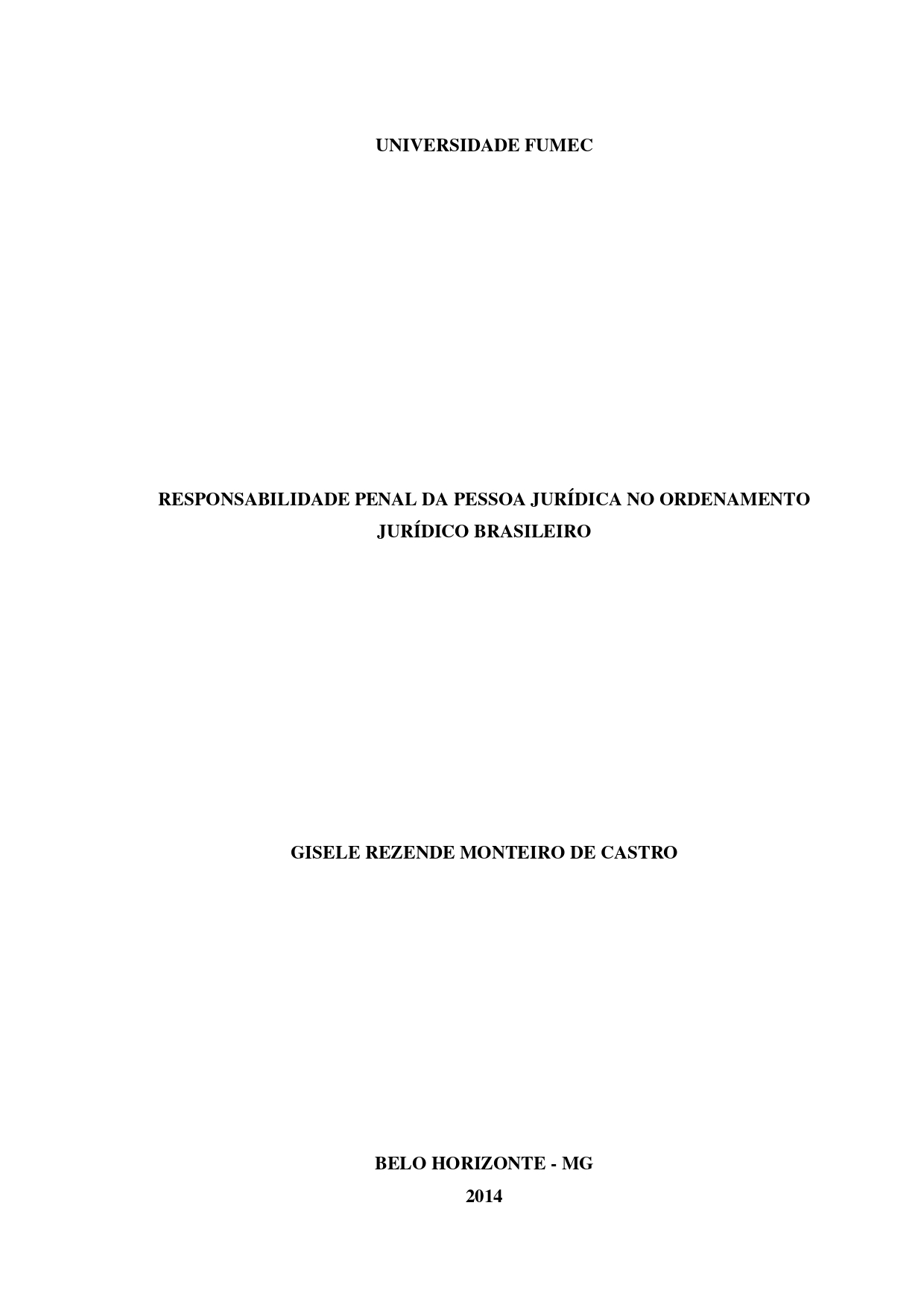Responsabilidade penal da pessoa jurídica no ordenamento Jurídico brasileiro

Visualizar/
Data
2014Autor
Castro, Gisele Rezende Monteiro de
xmlui.mirage2.itemSummaryView.MetaData
Mostrar registro completoResumo
O presente trabalho tem por finalidade a abordagem do instituto da responsabilidade penal da
pessoa jurídica no direito pátrio, dada a determinação constitucional vertida no artigo 225,
parágrafo 3º da Carta de 1988, no sentido de se tutelar o meio ambiente de ações lesivas, tanto
na seara administrativa quanto na esfera penal. Objetiva-se, desta forma, a análise das
implicações e reflexos da adoção do referido instituto, haja vista a controvérsia existente
quanto à sua aceitação, tanto na doutrina quanto na jurisprudência, em vista do embate entre
as correntes antagônicas que adotam as teorias da ficção e da realidade. Neste contexto, muito
embora os adeptos da teoria da realidade tentem harmonizar os conceitos do Direito Penal
com os anseios da política criminal, materializados pela vontade do constituinte de 1988,
analisar-se-ão os entraves existentes à legitimação da responsabilização penal dos entes
abstratos em vista da adoção da teoria finalista da ação, que funda-se, basicamente, na noção
da ação humana dirigida a um determinado fim. This paper aims to approach the institute of criminal liability of legal person in parental right,
given the constitutional provision poured in Article 225 , Paragraph 3 of the 1988
Constitution , in order to protect the environment from harmful actions , both in
administrative harvest as in criminal cases. Objective is thus to analyze the implications and
consequences of the adoption of this institute, given the current controversy as to its
acceptance , both in doctrine and in case law , in view of the clash between the antagonistic
currents that adopt the theories of fiction and reality . In this context , although the supporters
of the theory of reality try to harmonize the concepts of criminal law with the desires of
criminal policy , materialized by the will of the constituent 1988 , will examine whether
existing - legitimization of the criminal liability of abstract entities barriers in view of the
adoption of the finalist theory of action , which is based, primarily , on the notion of human
action directed to a specific purpose.
